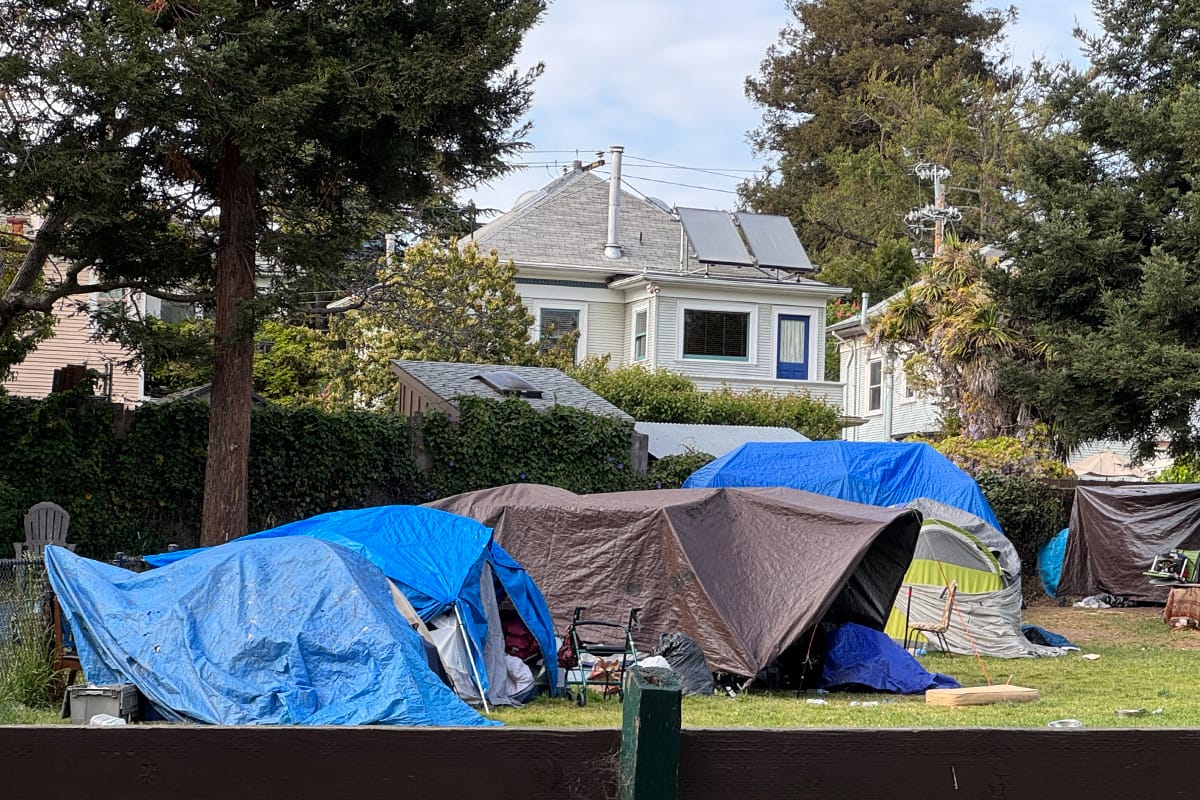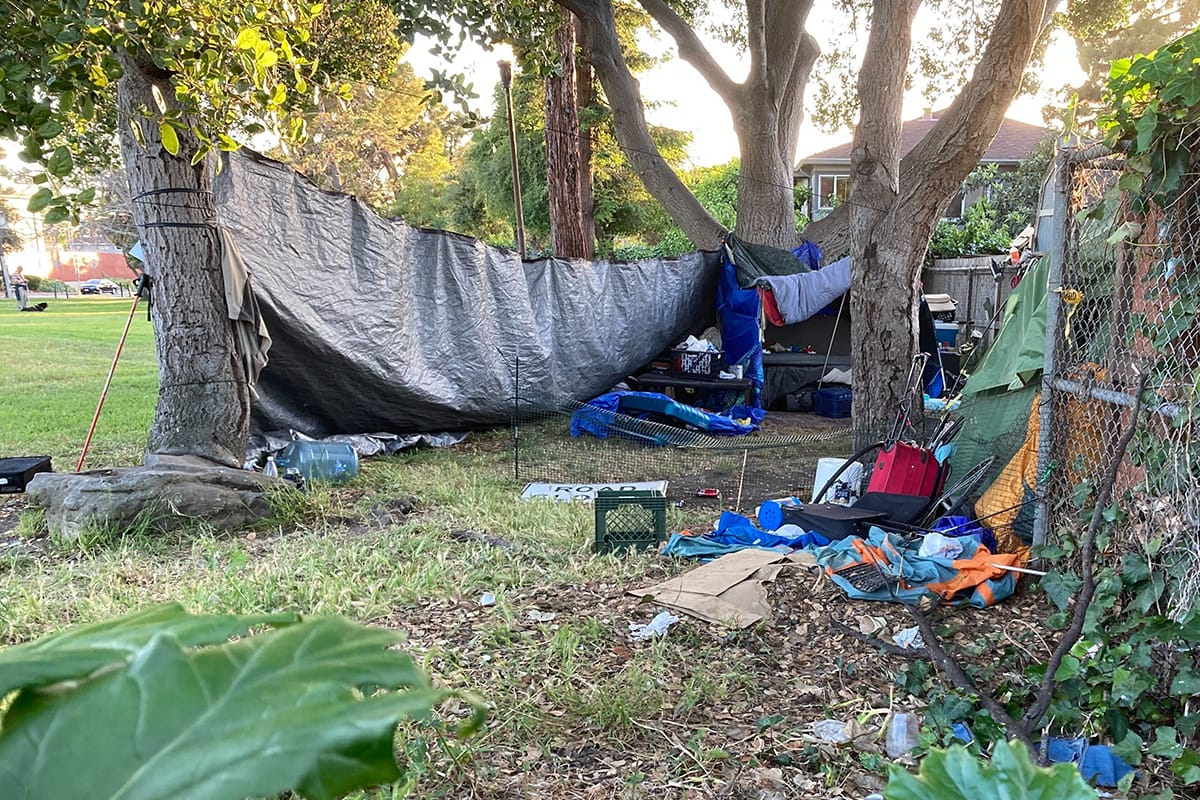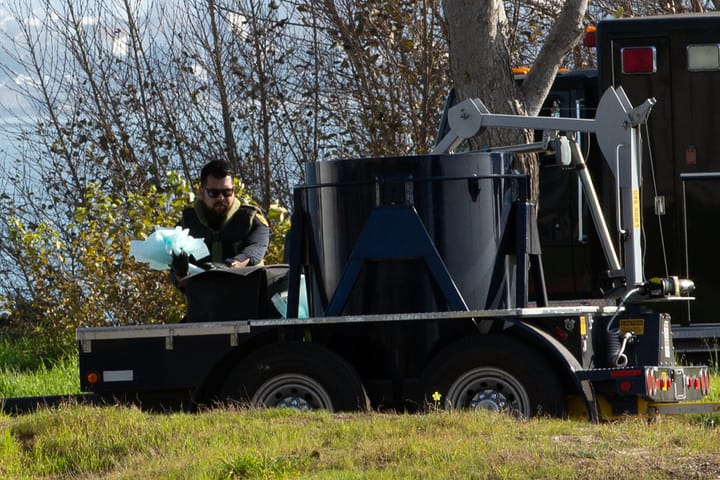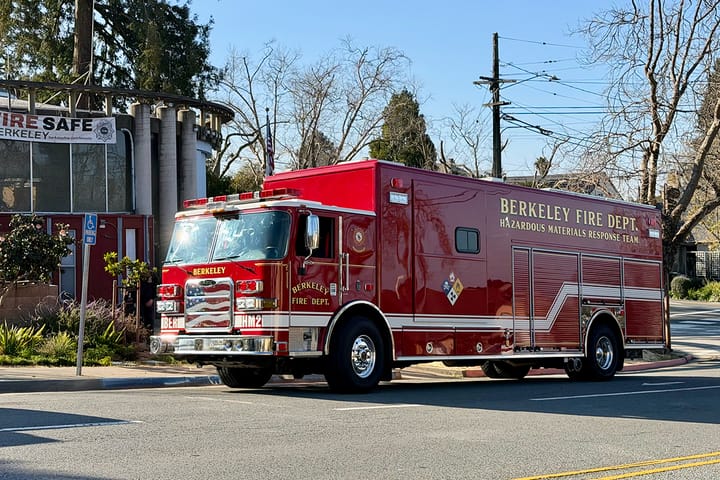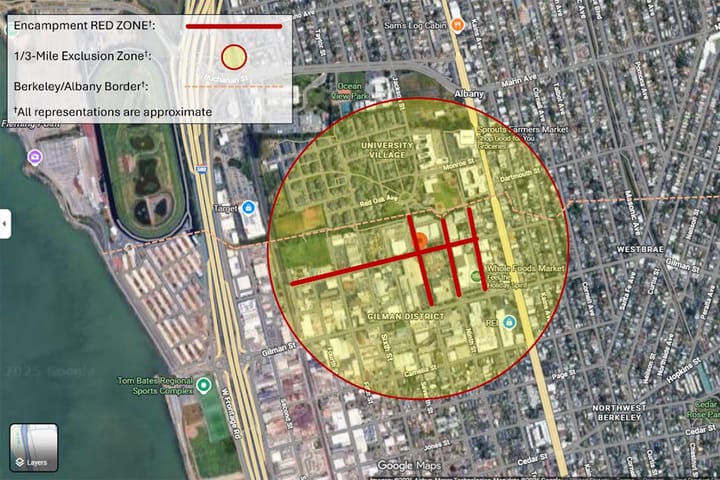Ohlone Park homeless camp closure set for this week
People on both sides say they are considering legal action.
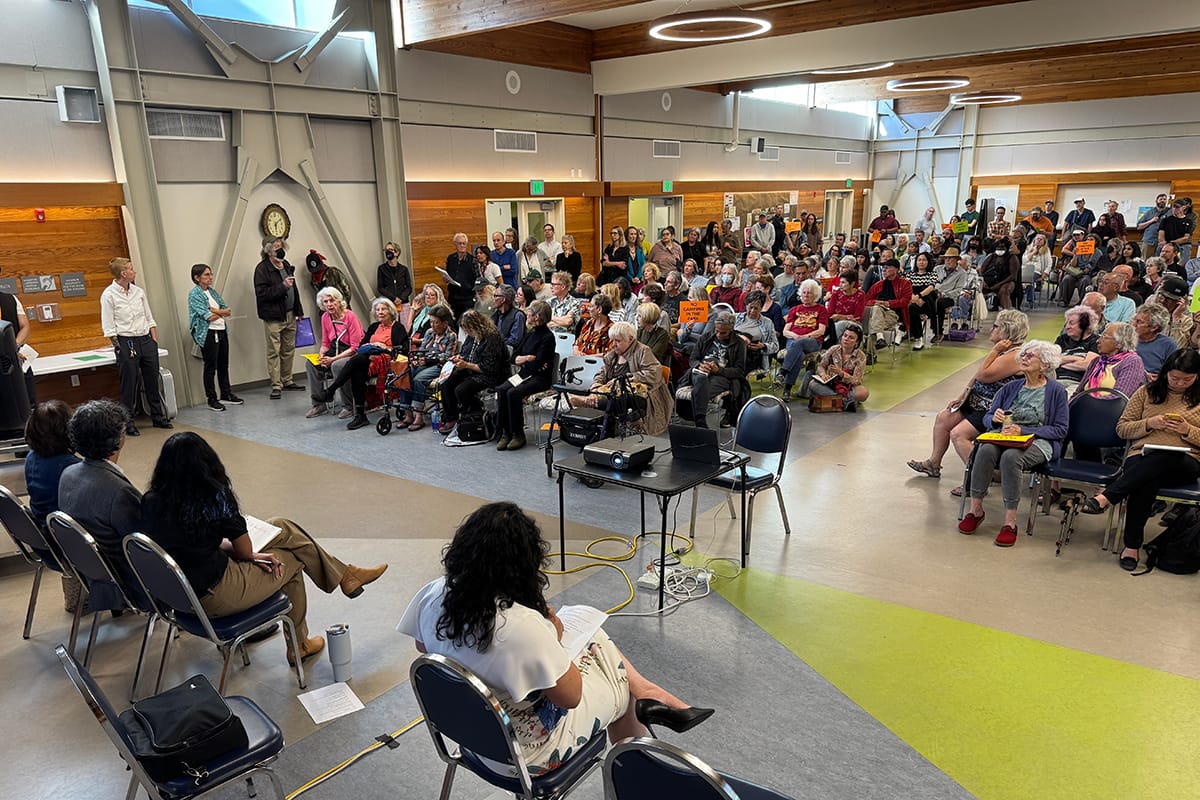
The city of Berkeley has pledged to close a homeless encampment at Ohlone Park in response to an array of concerns described by some as a public health emergency.
In a recent notice, the city advised campers that they must remove their tents and other property by Wednesday, May 28, due to the planned closure.
Last week, the Berkeley Homeless Union moved to block city enforcement at Ohlone Park, but the matter has yet to go before a judge.
Some neighbors of Ohlone Park, who have organized under the moniker Save Ohlone Park, say they are also considering legal action to force a cleanup.
In recent weeks, city staff has visited the camp and made nearly two dozen shelter offers. But there haven't been many takers, the city said last week.
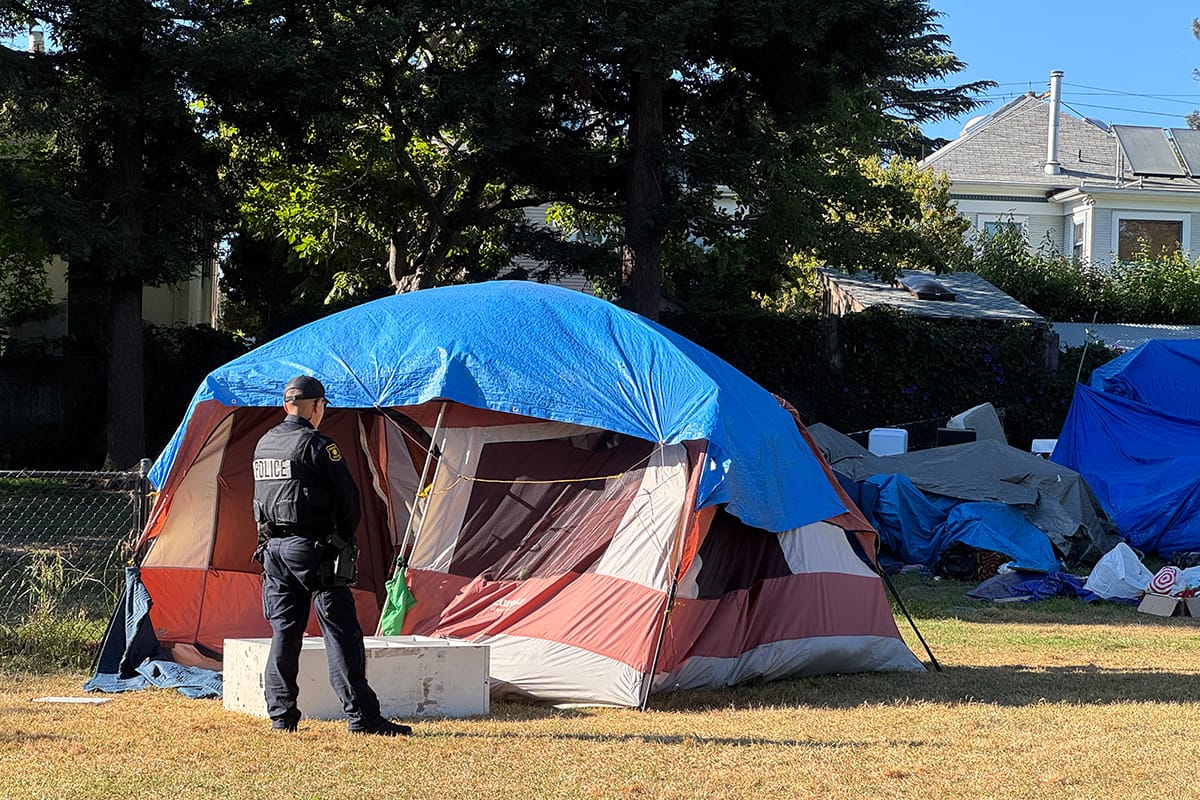
On Thursday, more than 100 local residents attended a community meeting about the park that was organized by Councilwoman Rashi Kesarwani's office.
City staff and elected officials, including County Supervisor Nikki Fortunato Bas, were also in attendance.
While some of the speakers who took the mic urged the city not to close the camp, the vast majority of commenters said it's long past time for action, sharing a litany of horror stories about their experiences with the encampment.
Before public comment began, Berkeley Neighborhood Services rep Peter Radu put the city's approach to addressing homelessness in a broader context.
Radu stressed that the city works hard to get people into housing and connected with services so as not to simply shift the issue from block to block.
"That doesn't solve the problem," he said. "It creates a new set of problems for a new set of neighbors, and it does not solve the problem for the people who are living on the street."
He said the city's Homeless Response Team had served nearly 600 people since its creation — and that nearly two-thirds of them had eventually moved into permanent housing.
As a result, the city has been able to reduce unsheltered homelessness by 45%, bucking regional trends, he said.
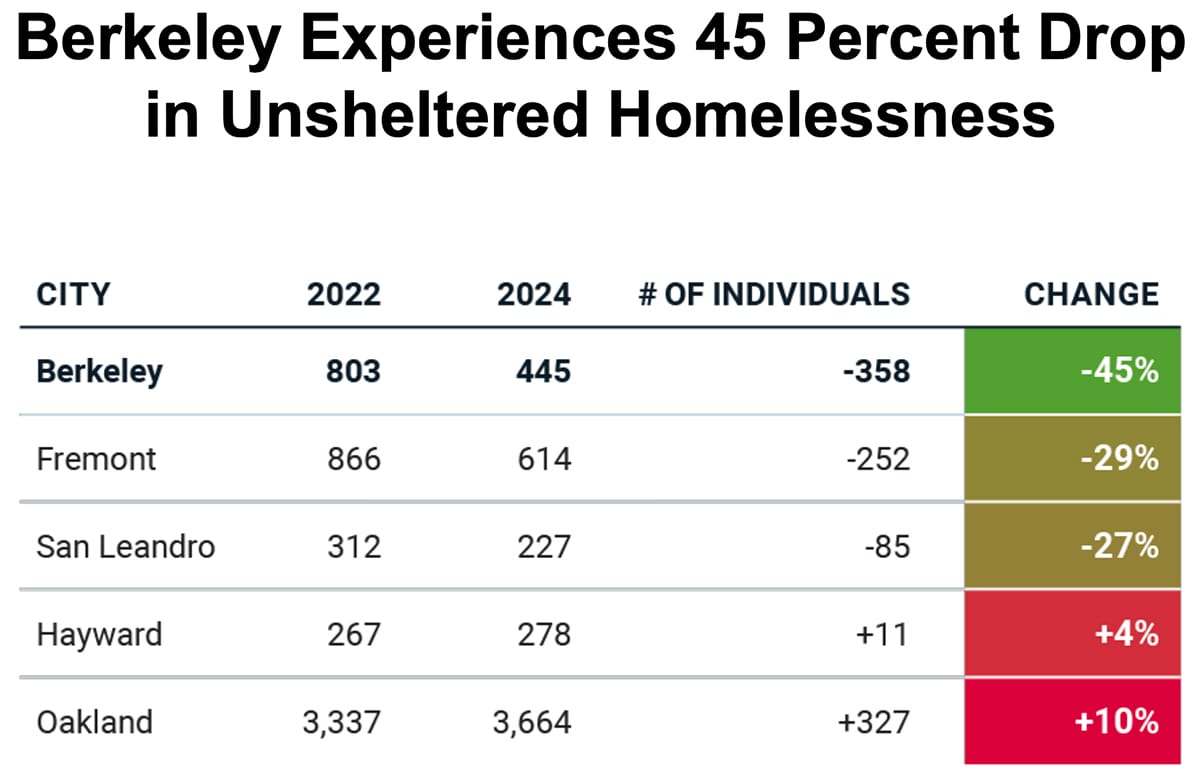
But the solution isn't cheap.
This fiscal year, Berkeley has spent more than $30 million related to homelessness — about 7% of the county total, Radu said.
Despite that, the city can't get funding directly from the state, via its Homeless Housing, Assistance and Prevention program, because it's considered "too small."
Data also show that a growing number of people who are unsheltered in Berkeley come from outside the county, Radu said.
In 2022, 67% of unsheltered individuals in Berkeley said they had last been housed in Alameda County.
By 2024, that number had fallen to 57%, Radu said.
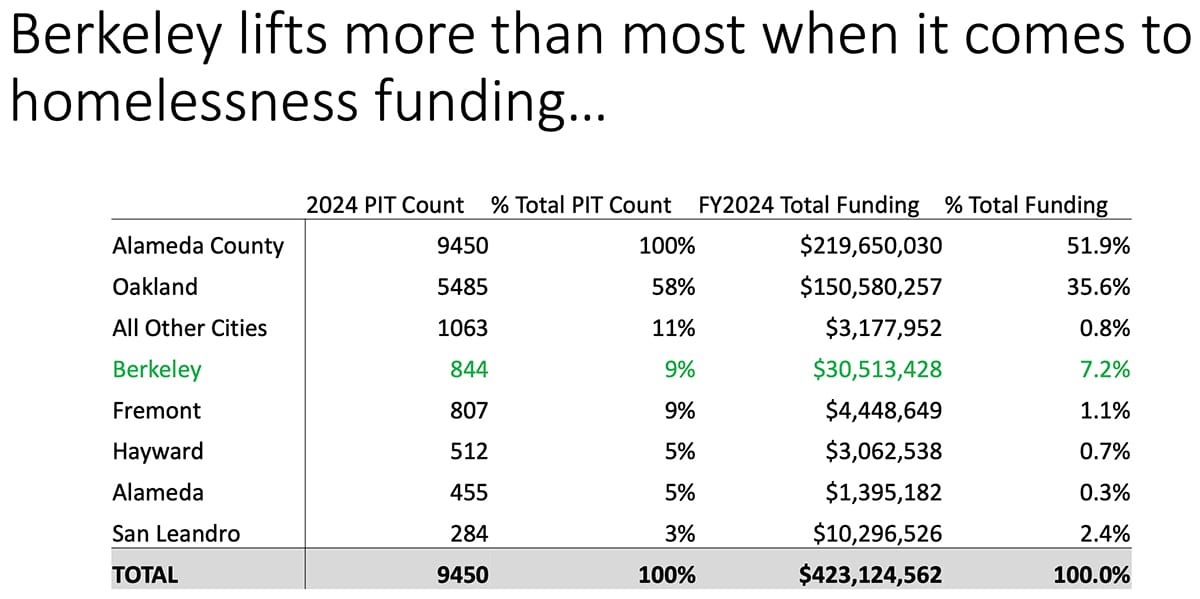
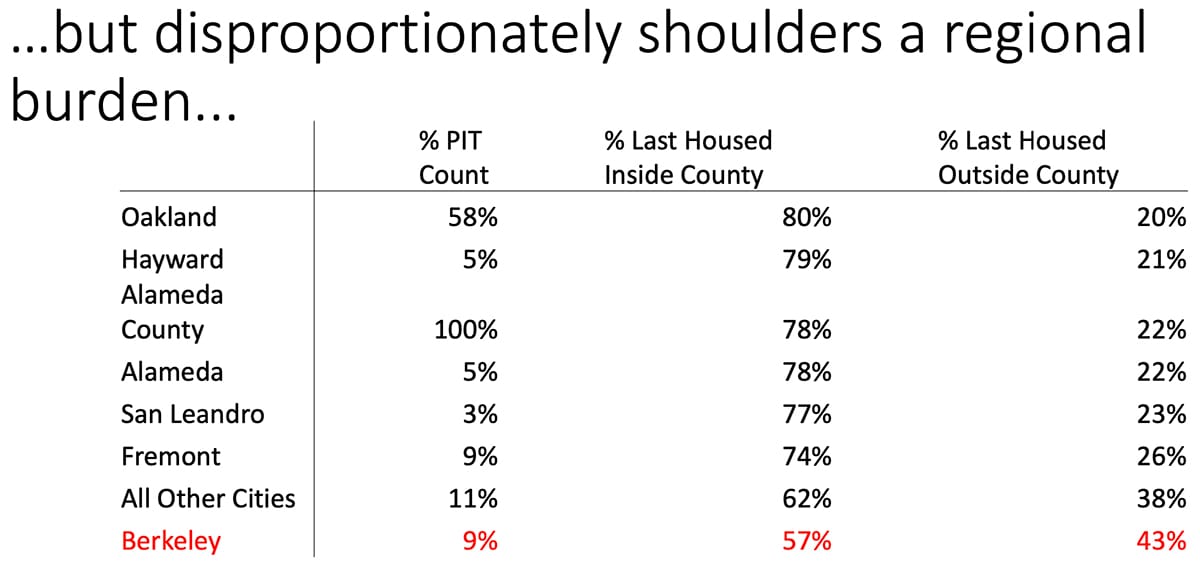
Slides from last week's city presentation on homelessness funding. City of Berkeley
" Berkeley has the lowest rate of any jurisdiction of people who are last housed in our county at the time that they became homeless," Radu said. " It's important to recognize that we are disproportionately shouldering … this regional burden."
"We do have some evidence that folks are migrating here, seeking our services, because they know that it works," he continued. " And word spreads on the street about that."
Radu said he wanted to make it clear that Berkeley's goal should not be to "pull up the drawbridge."
But he said the county and state need to step up their support to help Berkeley tackle the challenge that comes with being a regional magnet.
That's especially true, he added, because Berkeley is facing a "looming fiscal cliff over the next several years" — between funding slated to dry up for a range of existing homeless housing projects in addition to the city's structural deficit in the general fund and uncertainty at the federal level.
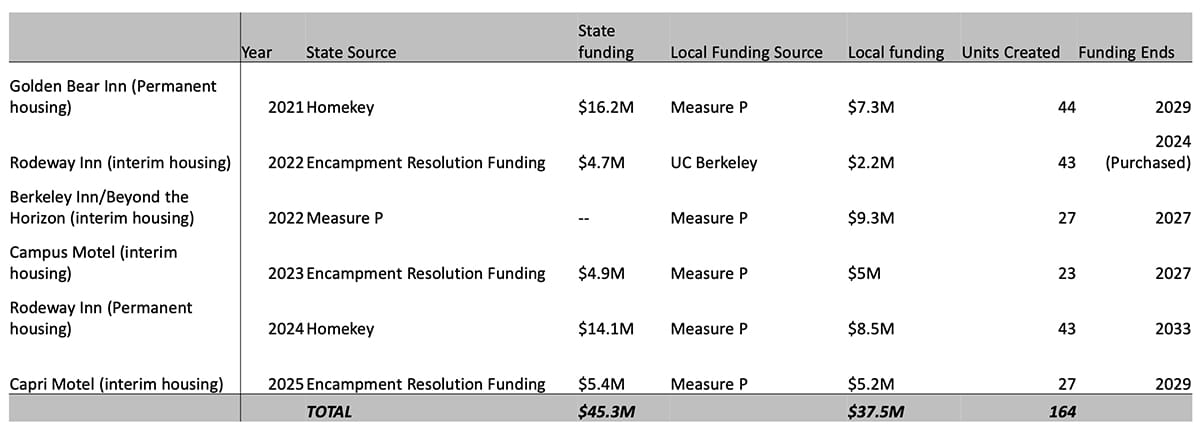
Part of the challenge, Radu explained, is that Berkeley spends more that many of its neighbors on homeless housing projects but has no say in who gets to move in.
That's due to a federal law passed in 2009 under the Obama administration that requires a " countywide referral system known as coordinated entry," he said.
Radu said Berkeley has spent close to $40 million in recent years, and leveraged more than $45 million from the state, to set up nearly 170 units of permanent and interim housing in former Berkeley motels.
As another example, he said, there's a nearly 40-unit project about to open on University Avenue where the city funded about 82% of the project but also has no input as to referrals.
He said the city is now working to craft a policy, following a recent City Council vote, that might give Berkeley more of a voice.
" We're at a point where we need to step back and assess our current situation," he said Thursday night. "Cities need to, I think, be co-deciders in which people get matched to permanent housing resources [especially] when we are doing a large encampment closure."
Radu said the city will continue to do everything it can to address homelessness in a thoughtful, compassionate way.
"Even though it may appear to you that we are not moving with urgency, I hope I can impress upon you that that is not the case at all," he said. "We're just a tiny city and we have to do a lot. But, if we had more support from higher levels of government, we could absolutely do more."
Read more about homeless camps in Berkeley.
In her closing remarks, Mayor Adena Ishii thanked everyone for sharing their stories, particularly people who described being frightened by what they have seen in their neighborhoods.
"That is really horrible and completely unacceptable," she said. "When folks are talking about drug use, dogs off the leash, watching people defecate, it's really unacceptable and I want to acknowledge that that is not OK."
Ishii pledged to lobby for support from the county and state, while also asking neighbors for patience, saying the problem is only likely to get worse under the current federal administration.
The mayor said she's also working with city staff to find longer-term places for people to go and collaborating with county partners as well as other Bay Area mayors on the issue.
" We're aligned here in that we want people to be off the street," she said. " I know this is a really challenging situation."
Stay tuned for ongoing coverage.
Related stories
